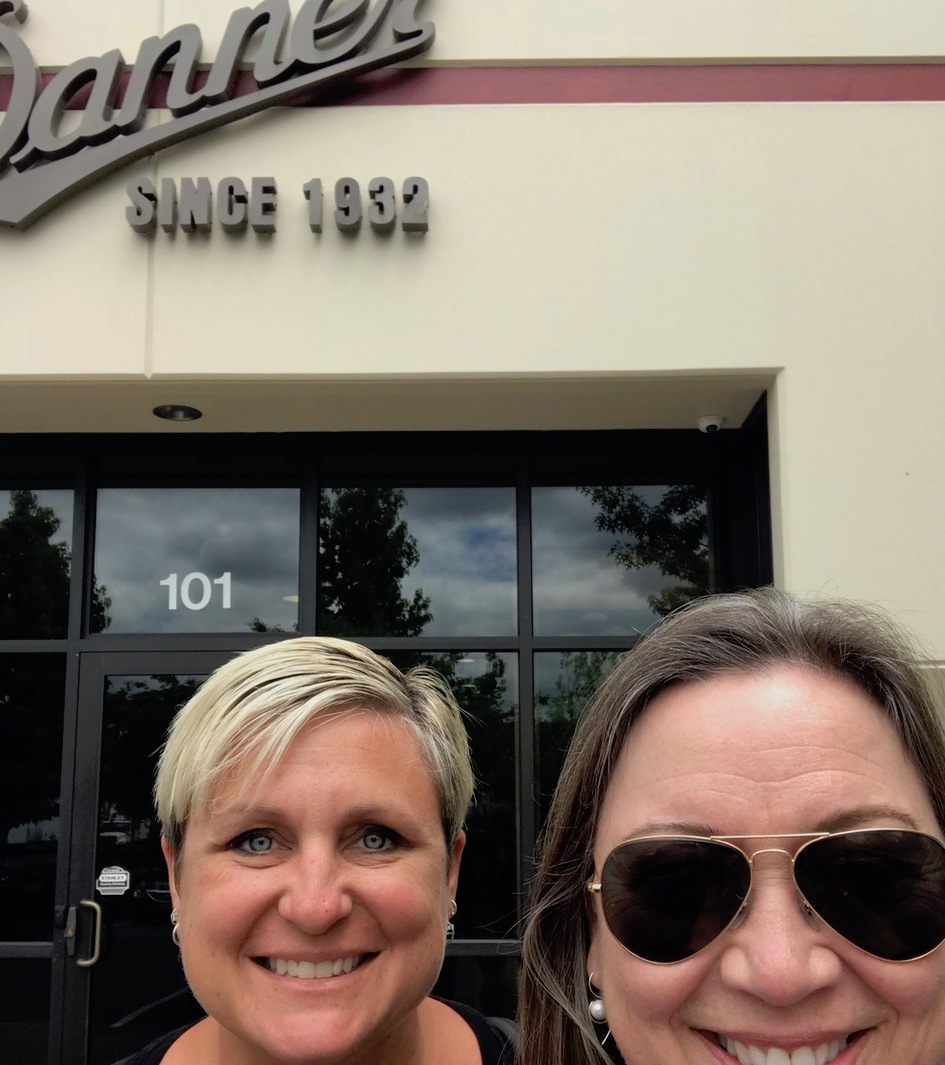Managing editor Michelle Cerino and I visited Crimson Trace, in the Portland, Oregon, area in July and while there, Danner invited us to come over and see its boot factory and recrafting facility. How could we refuse such an invitation?
 Danner Boots
Danner BootsIn 1932, Charles Danner opened the first boot-making facility in Chippewa Falls, Wisconsin, a logging town. At that time, a pair of logging boots cost about $4. Four years later, Danner found that he could sell boots in the Pacific Northwest to loggers for $10, so he moved his family to Portland. It’s the “American Dream” story unfolding. During WW2, Danner supplied the local shipyards with well-made, durable boots. By the 1960s, it had reached from the industrial market to the hiking world, becoming the only domestic maker of hiking boots. By 1979, the company is exploring technology to keep hiking feet dry, and becomes the first brand to patent a waterproof boot. A decade later, its boots are being worn around the world by US troops. Danner sold the company — on the condition that the new owner, Eric Mark, follows the traditions instilled for solid quality and craftsmanship — in 1983.
Sponsored by Danner
In 1994, Danner and LaCrosse Footwear Inc., merged.
In 2010, Danner continues to serve the military and designs protective footwear for troops serving in military engagements in the Mideast. Today, it offers its wide variety of boots online and in retail shops worldwide.
As usual, a picture will tell lots of words, and so we invite you to come with us on our behind-the-scenes tour of both places.
Danner opened its 59,000-square-foot factory in 2012. It also opened a stand-alone factory store, along with a recrafting workshop. The next year, the company opened 2 retail stores in Portland.
Erin Braun, media relations manager for LaCrosse Footwear, invited us to meet her at the Danner factory. She walked us through the boot-making process, introduced us to people and allowed us to ask all the questions we wanted to ask! Check out this very popular boot that firefighters love, and that Erin could float on the Columbia River in.
We saw aisles and aisles of boot molds, ready to go to work in the various designs and in all sizes.
These are some of the boot models made at this facility in Oregon. Do you recognize any of your favorites?
Made in the USA.
Jay is Danner’s “leather jockey” and has been with the company for 26 years. He shows us how he tests the leather, especially to see if it will qualify to stretch over a boot’s toe area.
Technology makes short work of cutting out the various pieces for boots.
Danner customizes branding of boots, as well. Check out this one, done for the US Marine Corps.
This is probably one of Erin’s favorite machines, and it dates back to the early 1900s. It’s used for the triple stitching.
Here is a closer look at the lovely triple stitch produced by that vintage machine.
That American flag — such an important touch. These boots are waiting for their soles — insoles, that is.
We drove over to the outlet store and recrafting workshop, where old boots become new again.
Here’s a perfect example of what a recrafted boot looks like when it is finished.
Here’s an idea of how much it costs for the various packages available and applicable to worn Danner boots.
Marci Uselman is the Recrafting manager, and she is the liasion between a customer and his or her boots. For each pair of boots — roughly 3,000 yearly — Marci photographs the before and after versions and sends the pics to satisfied customers.
Erin surprised at the end of the tour and said we could have our pick of any boots in the shop! I think between us, Michelle and I might have tried on every style. It was difficult to choose, but she went with the Mountain Light for her upcoming trip to Alaska and since I had heard so many great things about the Jag, I chose it in midnight to wear on the range. We have not regretted our decisions. In fact, I even ordered a second pair of the Jag boots, in teal.
Visit Danner Boots here.
Publisher/Editor Barbara Baird is a freelance writer in hunting, shooting and outdoor markets. Her bylines are found at several top hunting and shooting publications. She also is a travel writer, and you can follow her at https://www.ozarkian.com. View all posts by Barbara Baird